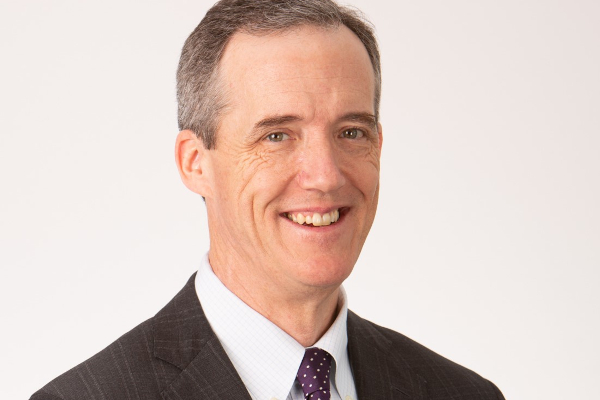Beverage advocate sees humbleness as key to policy success
Beverage advocate sees humbleness as key to policy success
- August 14, 2020 |
-
 CEO Update
CEO Update

2020 AWARD HONOREE: LOBBYIST OF THE YEAR
Keane says despite Hollywood stereotype of profession, lobbying can be an effective way to solve problems and foster positive change
 Keane
Keane
CEO Update: You started your career as a journalist then made the switch to politics. What led to the career move?
Association Leadership Awards
Upcoming: Profiles of 2020 Association Leadership Awards honorees Michelle Mason, CEO of Association Forum, and Matthew Shay, CEO of the National Retail Federation.
For information about attending the Sept. 24 virtual event, go to www.ceoupdate.com/awards
Kevin Keane: I love journalism, but I was kind of old school with it. … I believe in the practice of journalism, but it was starting to change a little bit, so I was like, "If you are going to get into the arena, get into the arena."
I was fortunate in that I was offered an opportunity to become press secretary for Wisconsin's (former) Gov. Tommy Thompson, who was probably one of the few politicians I believed I could go work for, so it was fortuitous. I was in D.C. as a reporter for Thomson newspapers and (my wife and I) had our first child. My family is from Chicago and my wife's family is from Wisconsin, so it was karma: Go work for someone you believe in, get into the arena and bring the grandchild back home.
CU: You first joined the American Beverage Association in 2005. What has kept you at the association all this time?
KK: Two things—the companies and the people at ABA. I have been fortunate to have great opportunities in my career and when you recognize that you have those, you cherish them and want to keep building on them. I was always a big admirer of the beverage companies. Deep down I was always kind of a marketer and loved advertising and marketing, and after many years at (the Department of Health and Human Services) and serving the president, the opportunity to work for Coca-Cola, Pepsi and Dr. Pepper was kind of a nice, refreshing change. …
Plus the big thing is opportunities have continued to grow with the association—the association has literally transformed itself. … The opportunity to do something with an impact has continued to be there. It is a big reason I got into government: You can make a difference. And when you are with a trade association, you can make a difference not just for your members, but for the communities they serve, and that is a special opportunity.
CU: At ABA, you oversee advocacy efforts at all levels of government—local, state and federal. They would seem very different playing fields, but what ways are those efforts interconnected?
KK: That's one of the opportunities this association has provided: It is multidimensional in dealing with federal issues, state issues, city issues—not unlike what I was used to when I worked for a governor, where you are involved in policy at all levels. Our companies at their core are community-based companies. They're literally in every corner of America. So when you get that grounded perspective, it helps you with your policymaking regardless of what level of government you're at. You can see how actions in Washington can affect actions in Pasadena, Calif., or Waukesha, Wisc.
CU: There has been much discussion about diversifying association workplaces and memberships. What role, if any, do you think diversity and inclusion may play in association advocacy moving forward?
KK: It should have all along and now we have to do even better at making sure it is part of our culture and how we operate. We're doing a lot of self-reflection at ABA and we have colleagues leading that. Our goal is to get stronger, but it is something you have to work at every day and can't just say you're going to do it. … That is part of having a strong team—it is not a strong team if it is not a diverse and inclusive one.
CU: What are the essential characteristics of an association advocate?
KK: You need to be humble. You need to have tenacity, creativity and the interest to work your you-know-what off to make things happen. It's a great profession. It's a profession where you can make a difference, not just for those you represent and your companies, you can make a difference in society. … And it's changed a lot. It's not the Hollywood stereotype of the lobbyist. It is more what can you do to solve problems and making your community better by getting out there every day and making sure our companies can get out there and do their jobs.
Career highlights
From politics to ‘pop': Keane went to work for Wisconsin Gov. Tommy Thompson in 1994. When Thompson was tapped as secretary of Health and Human Services by President George W. Bush in 2001, Keane became HHS assistant secretary for public affairs. He joined ABA in 2005 and was named executive vice president of the newly combined government and public affairs department in 2017.
Proudest achievements: ABA credits Keane's leadership for the success of several industry initiatives—including guidelines for drinks sold at schools and more visible calorie labels—as well as the defeat of more than 40 proposed tax measures on member products. Keane cites the advocacy team he has assembled at ABA and his work at HHS.
No ‘I' in team: "Government affairs is a team sport. Your strength and success come from how well you can come together as a team with a clear vision and execute as a cohesive unit, and then do that at an elite and consistent level."
